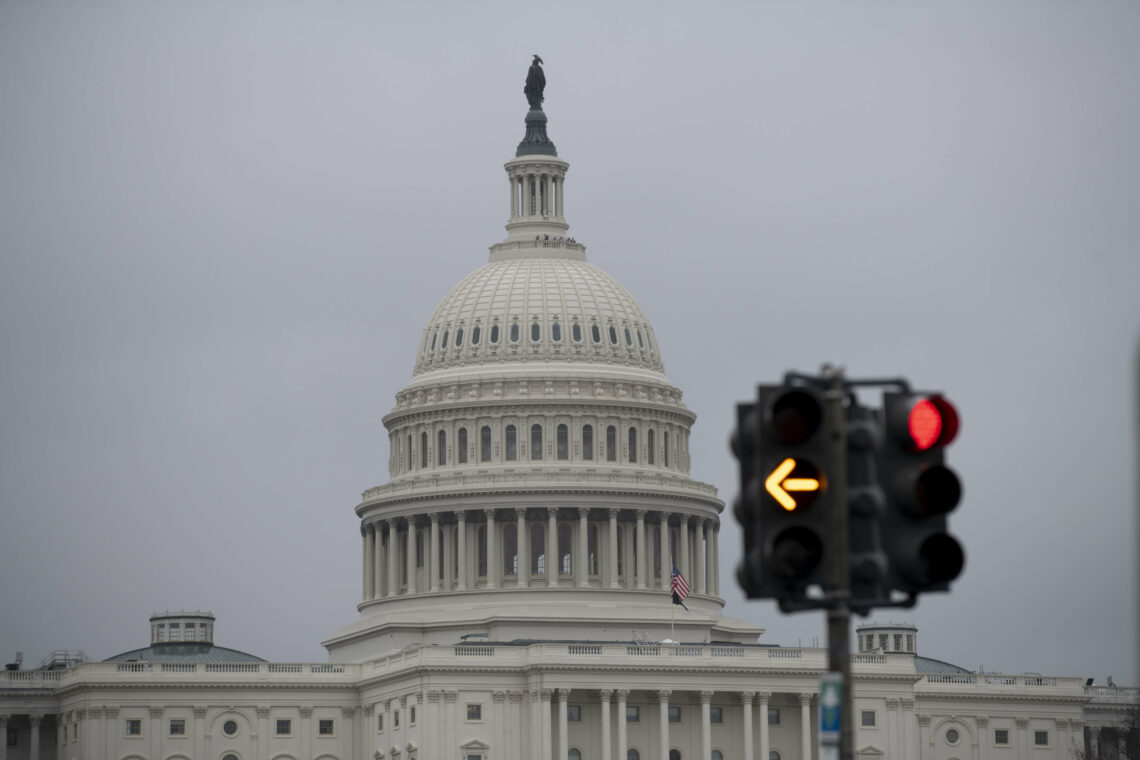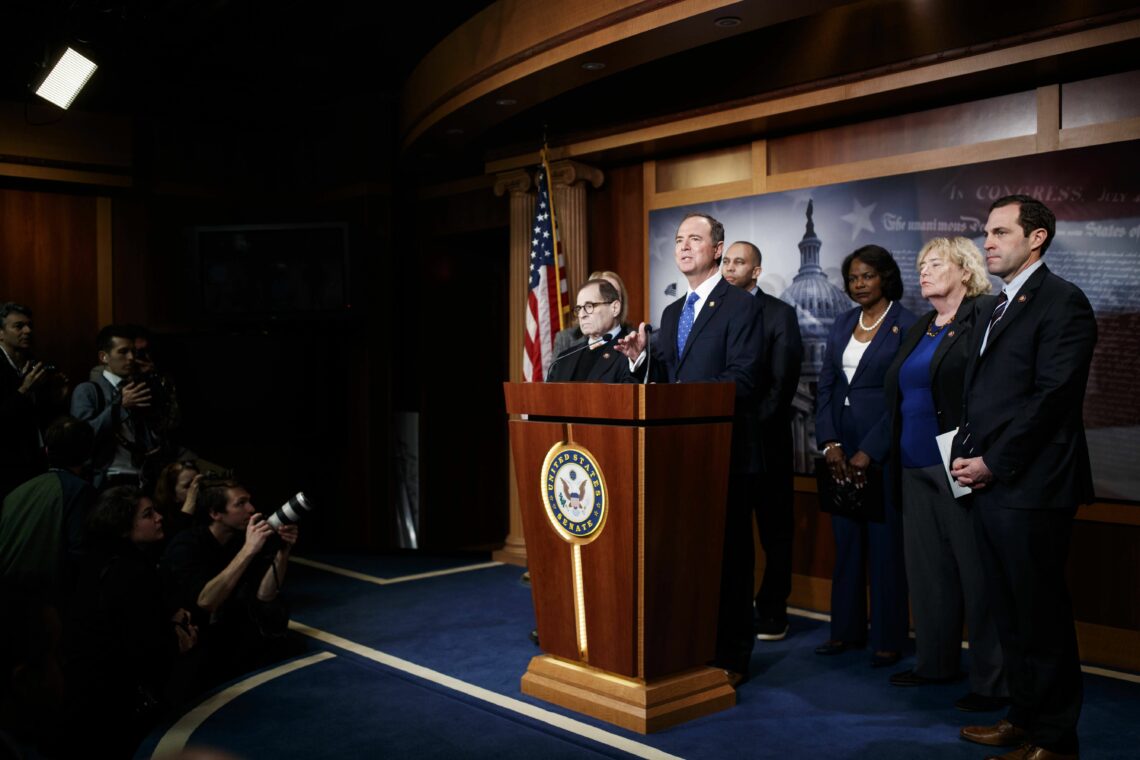U.S. impeachment’s Pyrrhic victories
The discourse around the impeachment of President Trump has been characterized by bitter attacks, self-righteousness and moralizing put-downs. To go beyond this state of affairs, both sides will need to address the unresolved questions that emerged during the hearing.

In a nutshell
- Both sides are likely to attack the other harshly ahead of the 2020 elections
- Several issues raised by the White House defense during the impeachment trial still need to be clarified
- Democrats and Republicans alike need to relearn the art of respectful political debate
Three years after the inaugural speech of the 45th president of the United States, the world witnessed a rather unique cluster of political events. Three months of impeachment campaign ended with an acquittal – an outcome that had been almost certain. After all, the decision “was regulated more by the comparative strength of parties than by real demonstrations of innocence or guilt,” to quote Alexander Hamilton’s 1788 Federalist Paper No. 65.
The real vote will take place in the next presidential election on November 3, 2020. The whole impeachment campaign seemed designed to shape electoral outcomes by damaging the reputation of President Donald Trump. Interestingly, it has not hurt him so far. The concurrent Gallup poll showed a 49 percent peak in the incumbent president’s approval ratings.
Animosities
The election campaign will now continue for another nine months. It could normalize to some degree, or it could stay on the path of continued efforts toward character assassination from both sides. Presidents do use harsh language: “Anyone who opposes me I’ll crush.” While this sounds like Mr. Trump, it was in fact Woodrow Wilson 100 years ago when he met opposition to the Versailles Treaty in the Senate.
The encounter between President Trump and Speaker Pelosi following the State of the Union Address hardly looked like normalization. Nor is that scenario likely to happen. To quote Hamilton’s Federalist Paper No 65 again: “The prosecution will seldom fail to agitate the passions of the whole community and to divide it into parties more or less friendly or inimical to the accused. It will connect itself with the preexisting factions and will enlist all their animosities, partialities, influence and interest on one side or the other.”
The authors of the Federalist Papers were fully aware of the difficulty to reconcile the need for prosecution and the need for continued government. The chosen procedure was a compromise. It allowed for impeachment via exception from immunity, without a judicial mechanism cutting through dissension over an acquittal.
This is what has unfolded in Washington. But, as Walter Lippmann, a giant of political journalism, wrote a hundred years ago, “only by an early and sympathetic effort to deal with great evils can the more sensible minds retain their control. Otherwise someday Congress, in a fit of temper, egged on by an outraged public opinion, will operate on the press with an ax.”
Time and time again, it has been emphasized that this was only the third presidential impeachment in U.S. history. The aftermath of the acquittal is likely to be rife with triumphalism and claims of irrelevance. Either way, the whole procedure may eventually come to be perceived through the prism of presumed injuries and abuses, and whether or not they were relevant or sufficiently investigated. The eventual outcome of the events is certain to differ profoundly from what has so far been the interpretation of the public and the media. However, before the situation can evolve, one side will need to reflect on the limitations of the moralism that has driven the procedure, while the other side will have to curb its self-righteousness.

Clarifications
The public may end up focusing on the weaponization of the impeachment investigation and losing interest in the facts. Yet while the Democrats have presented an extensive list of the president’s alleged injuries and abuses, several sensitive issues raised by the White House defense still await clarification:
- Ukraine remains as corrupt as under former President Petro Poroshenko, and the Burisma company – on whose board Hunter Biden sat – was a legitimate concern of the U.S. government before Washington released a major financial contribution of taxpayer dollars to Kiev.
- Even if President Trump’s main goal had been to hamstring presidential candidate Joe Biden, his concern was justified even without these personal incentives. Furthermore, there would have undoubtedly been more direct ways to affect Mr. Biden’s standing. The former vice president ended in fourth and fifth place in the recent Iowa caucus and New Hampshire primary respectively.
The aftermath of the acquittal is likely to be rife with triumphalism.
- Ukrainian President Volodymyr Zelenskiy has publicly declared that he was not aware of any quid pro quo, even though this hardly seemed to matter in Washington.
- The alleged withholding of financial aid was repeatedly described by Adam Schiff, the Democrats’ chief prosecutor and chairman of the House Intelligence Committee, as a disruptive move against an ally at war with Russia. But when the funds were released, Ukraine had not even noticed the delay.
- The Democrats claimed the hearings had produced “overwhelming evidence” supporting impeachment, until Ambassador John Bolton was requested as an indispensable witness. This is the same John Bolton with whom the Democrats bitterly fought until he was fired as National Security Advisor over such issues as his insistence on bombing North Korea and waging war against Iran, courses of action which President Trump declined to take.
It will be difficult for Democrats to reconcile these points with their total denial of President Trump’s accomplishments. The latter are either negated or ascribed to former President Barack Obama.
Lessons
The 2020 presidential election could still go in several directions, but all Democratic contenders so far consider the removal of Mr. Trump their main objective, even though they represent a broad spectrum of fiercely contested positions within the party. The more senators Bernie Sanders and Elizabeth Warren gain momentum on the left, the easier it will be for President Trump to prevail. If former New York Mayor Michael Bloomberg emerges as lead candidate, the Democratic left may find itself facing a bigger challenge than the incumbent president.
All Democratic contenders consider the removal of Mr. Trump their main objective.
Are there lessons to be learned from the theatrics of this impeachment, between the unprincipled condemnation and the self-righteous moralism? Plutarch’s audacter calumniare, semper aliquid haeret (Slander boldly, something always sticks) comes to mind. More than ever, politics reflect Plutarch’s maxim. But does that mean that political discourse, especially in democracies, is bound to result in Pyrrhic victories?
For Republicans and Democrats alike, this Washingtonian play is a reminder to relearn the art of respect, recognition and reciprocity. Perhaps they should recall George Washington’s prophetic words to Alexander Hamilton in 1788, to be reminded of the American constitutional spirit: “When the transient circumstances and fugitive performances which attend the crisis shall have disappeared, that work will merit the notice of posteriority.”








